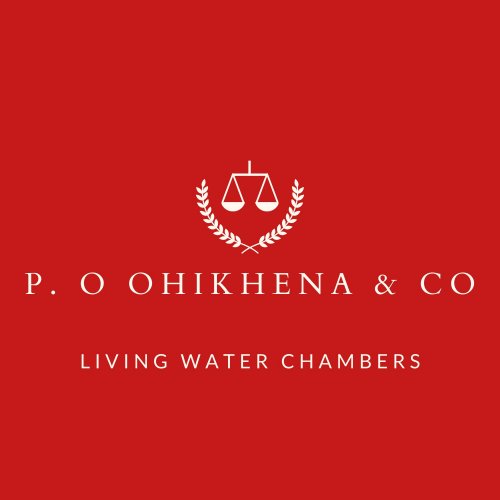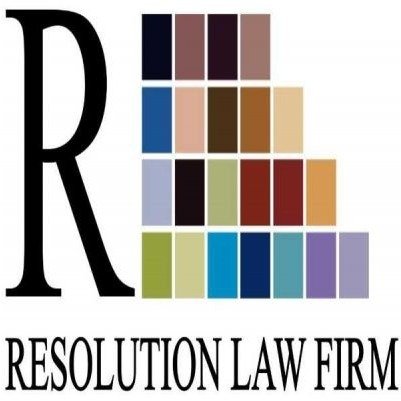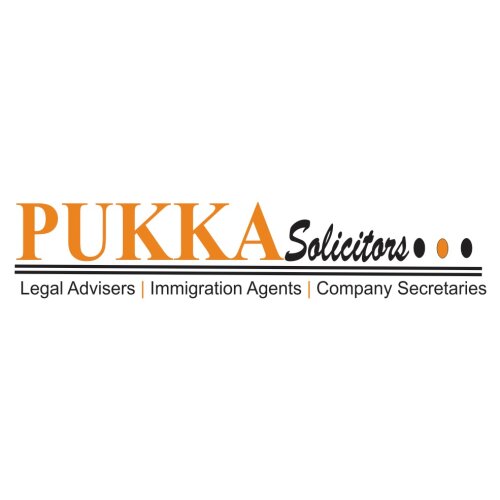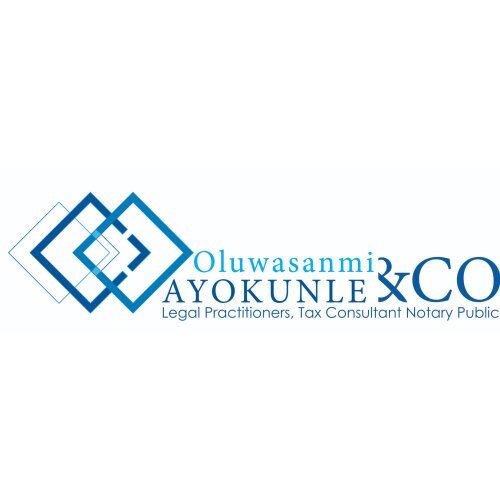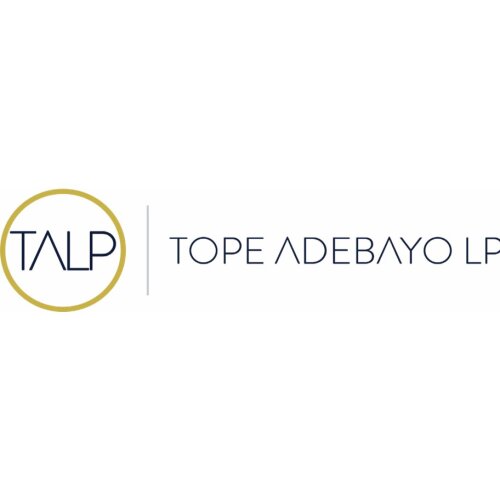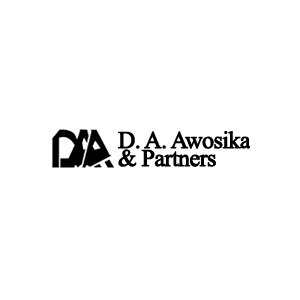Best Corporate Governance Lawyers in Ikeja
Share your needs with us, get contacted by law firms.
Free. Takes 2 min.
List of the best lawyers in Ikeja, Nigeria
About Corporate Governance Law in Ikeja, Nigeria
Corporate governance in Ikeja, Nigeria, refers to the rules, processes, and practices that control and direct companies. It involves balancing the interests of a company's stakeholders, such as shareholders, management, customers, suppliers, financiers, government, and the community. Ikeja, being a leading commercial center in Lagos State, hosts numerous corporate entities, and compliance with effective corporate governance frameworks is critical to maintain integrity, attract investment, and prevent corporate scandals. Laws and regulations have been put in place to ensure companies in Ikeja operate transparently and ethically, in accordance with Nigerian standards and global best practices.
Why You May Need a Lawyer
Engaging a qualified legal practitioner is essential for navigating the complexities of corporate governance. Some common situations where you may require legal help include:
- Registering and structuring a new company in compliance with Nigerian law
- Ensuring boards of directors function properly and follow legal procedures
- Drafting and reviewing corporate charters, bylaws, and board resolutions
- Addressing shareholders' rights and disputes
- Advising on regulatory compliance, especially if your company seeks to list on the Nigerian Stock Exchange
- Handling mergers, acquisitions, and corporate restructuring
- Managing allegations of corporate fraud, mismanagement, or conflicts of interest
- Ensuring compliance with anti-money laundering and anti-corruption standards
- Facilitating annual general meetings and extraordinary general meetings
- Monitoring director's duties and liabilities to prevent personal legal exposure
Local Laws Overview
Corporate governance in Ikeja is primarily governed by national legislations that have local impact, as well as guidelines from regulatory agencies. The Companies and Allied Matters Act (CAMA) 2020 is the central legal framework for company administration and governance. Other key laws and guidelines include the Securities and Exchange Commission (SEC) Code of Corporate Governance, listing rules of the Nigerian Stock Exchange, tax laws overseen by the Federal Inland Revenue Service (FIRS), and anti-fraud regulations from the Economic and Financial Crimes Commission (EFCC) and Independent Corrupt Practices Commission (ICPC).
Key aspects relevant to Ikeja-based companies include:
- Mandatory registration and annual reporting under CAMA
- Board composition and director's duties as prescribed by law
- Shareholder rights, including voting and access to information
- Disclosure of beneficial ownership to prevent illicit activities
- Corporate social responsibility and sustainability reporting for large entities
- Specific sectoral regulations affecting banks, insurance firms, and listed companies
- Penalties for non-compliance, such as fines, disqualification of directors, or dissolution of companies
Frequently Asked Questions
What is corporate governance, and why is it important?
Corporate governance refers to the systems and frameworks that guide the direction and control of a company. It ensures accountability, fairness, and transparency, which help in attracting investors and avoiding legal or financial risks.
Which bodies regulate corporate governance in Ikeja?
Regulation is mainly provided by the Corporate Affairs Commission (CAC), the Securities and Exchange Commission (SEC), and the Nigerian Stock Exchange. Sectoral regulators may also oversee special industries such as finance.
What are the key documents a company must maintain?
Essential documents include the memorandum and articles of association, certificate of incorporation, board resolutions, shareholder records, minutes of meetings, and annual returns filed with CAC.
What is the minimum number of directors required for a company in Nigeria?
A private company must have at least one director, while a public company must have at least two, as stipulated by CAMA 2020.
How can shareholders protect their rights?
Shareholders can protect their rights by attending meetings, voting on important matters, seeking disclosures, and applying to the courts if they believe their interests are being trampled upon.
What happens if a company fails to comply with corporate governance regulations?
Failure to comply can result in penalties ranging from monetary fines and regulatory sanctions to the removal of directors or compulsory dissolution of the company.
Are there requirements for audit committees?
Yes, every public company is required to have an audit committee comprising equal numbers of directors and shareholders’ representatives, responsible for overseeing financial reporting and internal controls.
Can directors be held personally liable for company actions?
Yes, directors may be personally liable if found to have acted fraudulently, negligently, or outside the scope of their authority as stipulated by law.
What is the role of regulatory filings and disclosures?
They promote transparency, ensuring all stakeholders are aware of the company’s affairs. This is crucial for fostering investor trust and maintaining regulatory compliance.
How often must companies hold Annual General Meetings?
Every company registered in Nigeria is required to hold an Annual General Meeting (AGM) once every calendar year, as required by CAMA.
Additional Resources
For more information or assistance with corporate governance in Ikeja, you may contact or consult:
- Corporate Affairs Commission (CAC) - responsible for company registration and compliance
- Securities and Exchange Commission (SEC) - regulates public offerings and listing standards
- Nigerian Stock Exchange - oversees listed companies and compliance with corporate governance codes
- Lagos State Ministry of Commerce, Industry and Cooperatives - offers guidance for local businesses
- Economic and Financial Crimes Commission (EFCC) and the Independent Corrupt Practices and Other Related Offences Commission (ICPC) - for reporting corporate fraud or unethical behavior
- Nigeria Institute of Directors - provides resources and training for company directors
- Lagos Chamber of Commerce and Industry (LCCI) - provides advocacy and support for businesses
Next Steps
If you need legal assistance with corporate governance in Ikeja, consider taking these steps:
- Gather all relevant documents related to your company, including incorporation papers, board minutes, and compliance reports
- Make a list of your concerns or questions regarding governance, compliance, or disputes
- Consult a qualified corporate lawyer or firm with experience in Nigerian corporate law and governance frameworks
- Visit or contact the Corporate Affairs Commission or other regulatory bodies if you need specific information or to verify the status of your company
- Attend seminars, training, or workshops on corporate governance to stay updated with best practices
- Regularly review your company’s internal policies and practices to ensure ongoing compliance
Taking these steps will help you protect your company, enhance its reputation, and ensure you are operating within the bounds of the law.
Lawzana helps you find the best lawyers and law firms in Ikeja through a curated and pre-screened list of qualified legal professionals. Our platform offers rankings and detailed profiles of attorneys and law firms, allowing you to compare based on practice areas, including Corporate Governance, experience, and client feedback.
Each profile includes a description of the firm's areas of practice, client reviews, team members and partners, year of establishment, spoken languages, office locations, contact information, social media presence, and any published articles or resources. Most firms on our platform speak English and are experienced in both local and international legal matters.
Get a quote from top-rated law firms in Ikeja, Nigeria — quickly, securely, and without unnecessary hassle.
Disclaimer:
The information provided on this page is for general informational purposes only and does not constitute legal advice. While we strive to ensure the accuracy and relevance of the content, legal information may change over time, and interpretations of the law can vary. You should always consult with a qualified legal professional for advice specific to your situation.
We disclaim all liability for actions taken or not taken based on the content of this page. If you believe any information is incorrect or outdated, please contact us, and we will review and update it where appropriate.




